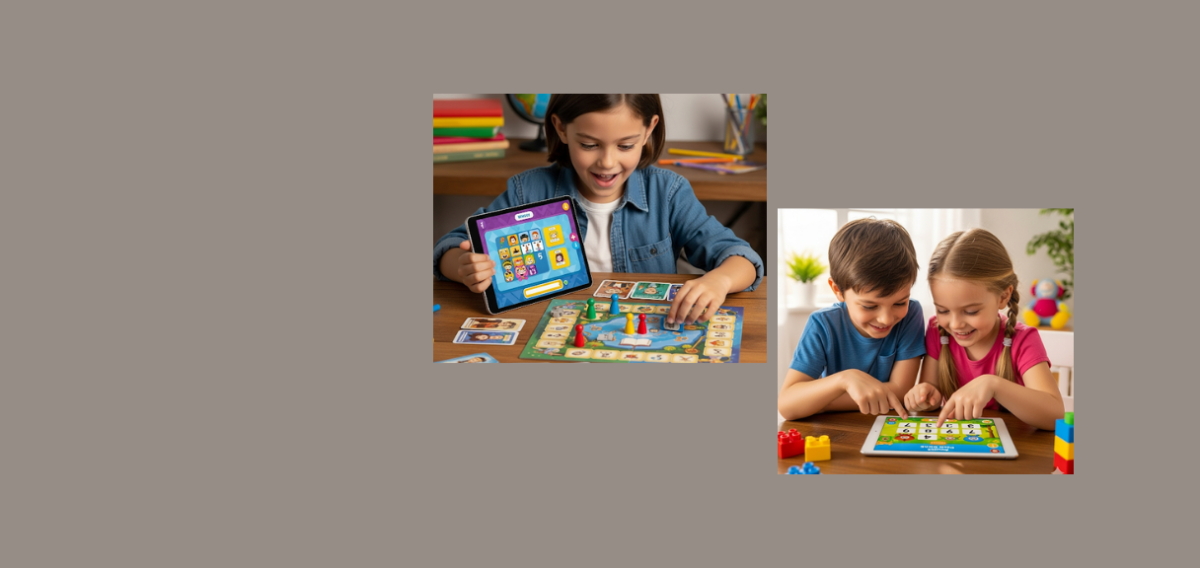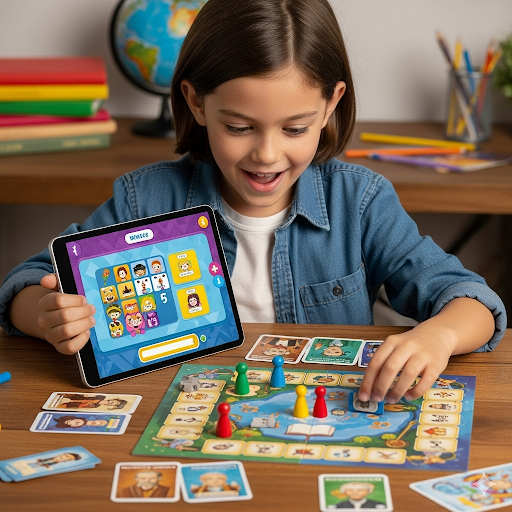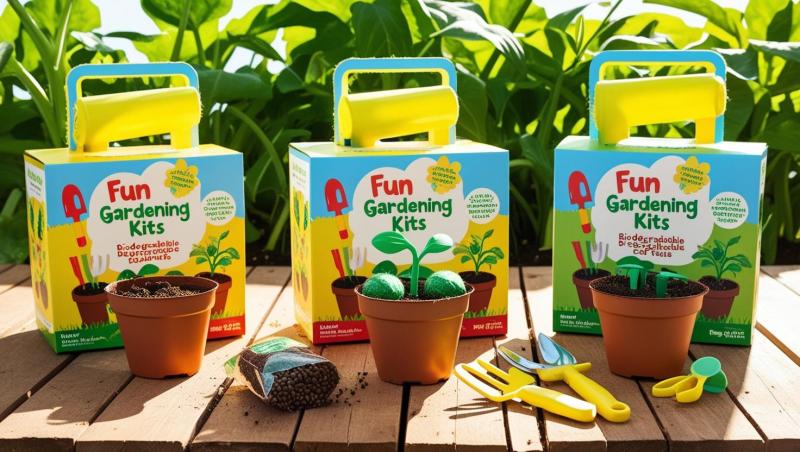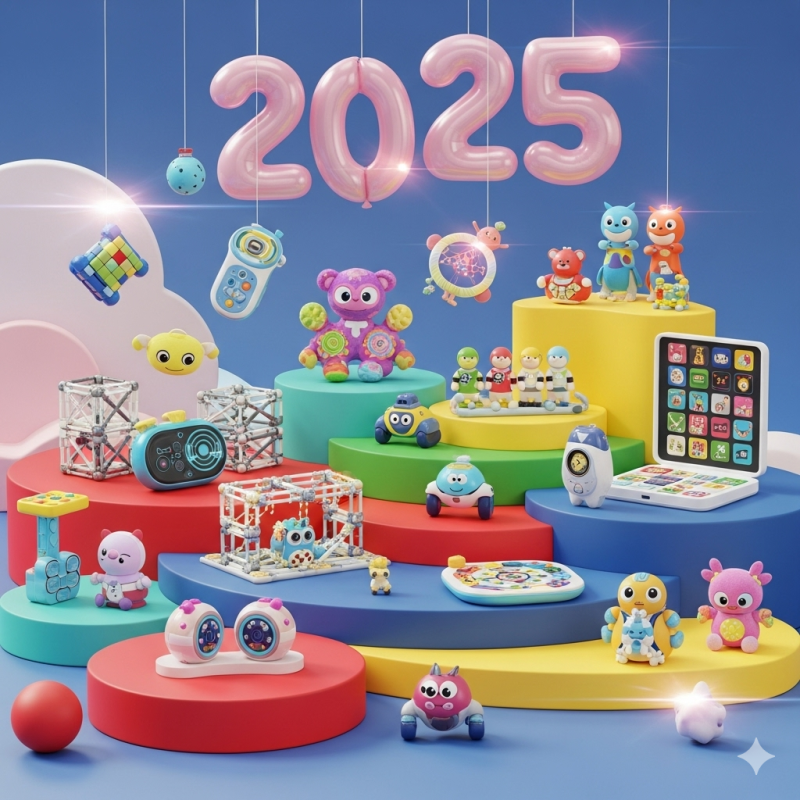Trying Educational Games: Making Learning Fun for Kids and Families
All parents want their children to grow up happy and fulfilled, surrounded by opportunities for growth and enjoyment. Most parents work hard to provide a balance of activities for their kids—whether that means signing them up for sports teams, enrolling them in music classes, or simply ensuring there are engaging toys and games around the house to fill their days with joyful play. Yet, beyond mere entertainment, childhood is a vital time for learning and discovery—a time when children absorb countless new skills and knowledge. The good news is that parents don’t have to sacrifice fun in order to nurture learning. Educational games offer a wonderful way to combine play with valuable lessons, making learning a natural and joyful process.
What Are Educational Games?
Educational games are exactly what their name implies: games specially designed to provide enjoyment while also promoting learning and development. These games invite children to build skills in areas such as math, reading, science, logic, and social studies—often without the child even realizing they’re “studying.” This seamless blend of fun and education makes them an excellent tool for parents who want to support their child’s growth in an engaging, interactive way.
Thanks to advances in game design and technology, educational games today come in a wide variety of formats—board games, card games, digital apps, puzzle games, and more—offering something to fit every family’s preferences and needs. Many are developmentally tailored to fit children at different ages and learning stages so parents can pick what’s right for their particular child.

Matching Educational Games to Your Child’s Age and Needs
One of the keys to successfully using educational games as part of a child’s learning journey is to consider their age, developmental stage, and specific learning needs. A game that’s perfect for a preschooler just starting to count and recognize letters won’t serve the same purpose for an older elementary school student who’s mastering multiplication or tackling history.
If you’re unsure about what games would be best, start by assessing where your child currently shines and where they might need extra support. Talking to teachers, childcare providers, or educational consultants can provide excellent insight into your child’s strengths and areas for growth. Teachers often have practical recommendations on skills your child should be working on, which can guide your educational game choices.
For example:
-
Toddlers and Preschoolers (2-5 years): Focus on games that develop language skills, counting, color and shape recognition, and social skills. Examples include simple matching games, alphabet puzzles, and interactive storytelling games.
-
Early Elementary (6-8 years): Games that challenge reading comprehension, basic math, critical thinking, and teamwork are ideal. Look for simple board games with rules, word games, and introductory science experiments.
-
Older Children (9-12 years): At this stage, kids can enjoy more complex strategy games, historical simulations, coding games, and advanced math challenges.
-
Teenagers: Educational games that encourage creativity, programming, business skills, or advanced science concepts cater well to this age group.
How Educational Games Enhance Learning at Home
Educational games are more than just fun distractions—they actively engage children in learning processes that support success in school and life. Here are a few ways educational games help at home:
1. Active Participation
Unlike passive watching of television or videos, games require children to think, make decisions, and interact. This active participation strengthens cognitive skills and concentration.
2. Hands-On Learning
Games often involve tangible materials—cards, dice, game boards—that stimulate tactile and visual learning. This multisensory engagement helps reinforce concepts memorably.
3. Encouraging Curiosity
By presenting challenges, puzzles, and storylines, educational games spark children’s natural curiosity and problem-solving inclinations.
4. Social Skills Development
Many educational games require cooperation, turn-taking, negotiation, and communication, building important interpersonal skills in a low-pressure environment.
5. Promoting Family Bonding
Playing educational games together creates opportunities for quality family time—laughing, learning, and building memories. This shared experience encourages positive attitudes towards learning.
Ideas for Educational Games to Try
Parents have a wealth of options when it comes to educational games. To make it easier, here’s a list of some popular and effective types and examples:
- Math Games
Games like "Sum Swamp" or “Math Bingo” teach addition, subtraction, and basic arithmetic in a playful context, turning numbers into fun challenges.
- Word and Reading Games
"Scrabble Junior," "Bananagrams," and "Zingo" help build vocabulary, spelling, and reading fluency through engaging play.
- Science and Nature Games
Games such as "The Magic School Bus Chemistry Lab" or "Animal Upon Animal" introduce children to science concepts and exploration.
- History and Geography Games
"Where in the World is Carmen Sandiego?" is a classic example for geography skills, while cooperative games like “Timeline” educate on historical events.
- Critical Thinking and Strategy Games
"Chess," "Blokus," and "Ticket to Ride" foster strategic planning, spatial reasoning, and forward thinking.
- Coding and Technology Games
Games such as "Robot Turtles" and coding apps for kids introduce basic programming logic and computational thinking.
- Creative Expression Games
Games with building sets, such as LEGO games or "Crazy Forts," encourage creative construction and teamwork.
Incorporating Educational Games into Your Routine
Introducing educational games need not be a formal, stressful event. Here are tips for weaving games seamlessly into your family’s life:
-
Substitute Screen Time: Swap passive video game time for interactive educational games.
-
Family Game Night: Dedicate an evening a week to family time centered on a mix of educational and fun games.
-
Travel and Waiting Games: Pack small educational games for car trips, doctor office visits, or waiting times.
-
Incorporate Learning Themes: Choose games connected to topics explored in school or emerging interests.
-
Balance with Physical Activity: Mix game time with outdoor play to support physical and mental health.
Where to Buy Educational Games
You can find educational games at many retail stores, toy shops, or online platforms like JustToysStore.com. Many companies cater to every age group and budget, creating high-quality, thoughtfully designed games for learning. Browse reviews and ask educators for recommendations to ensure your purchase matches your child’s needs.
Encouraging a Love for Learning Through Games
Educational games are powerful tools for nurturing a love of learning. When children associate gaining knowledge with fun and family time, they develop positive attitudes towards school and lifelong curiosity. Encouraging kids to pick and play educational games independently is a wonderful milestone signaling success.
Conclusion
Trying educational games is a win-win for families—children grow academically and socially, and parents enjoy watching their kids flourish. Games that promote math, science, reading, history, and critical thinking are gifts that keep giving, preparing children for educational success and joyful adulthood.
Next time you choose toys for your children, remember the immense value packed in educational games—they transform playtime into learning time without losing an ounce of fun.




